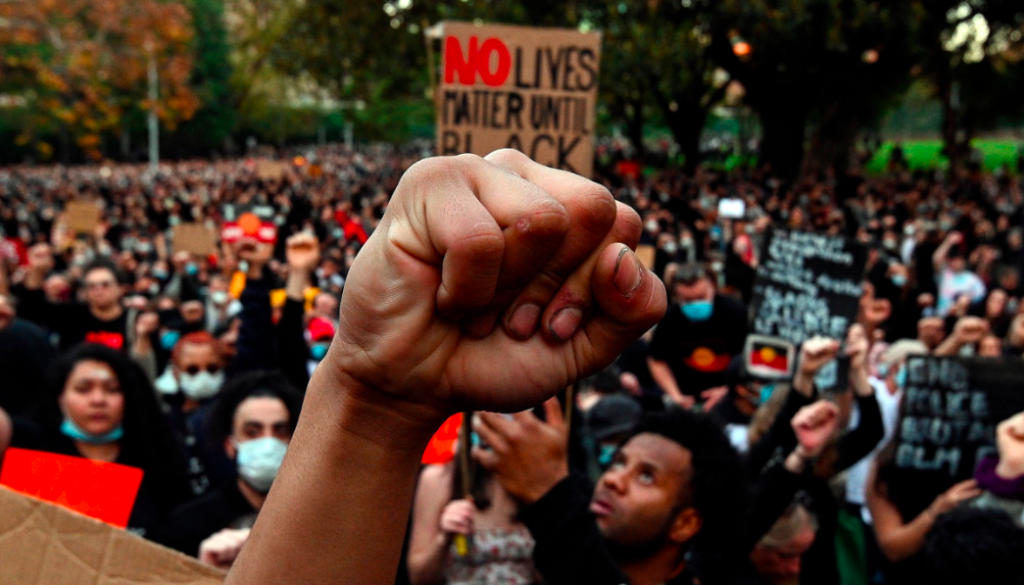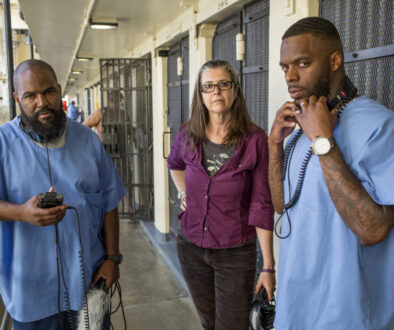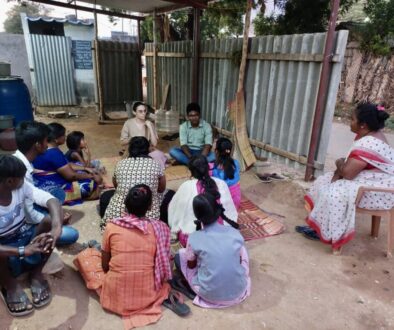Reducing imprisonment and deaths in custody through Justice Reinvestment
Labor went to the polls in May this year with a strong commitment to First Nations Justice. They pledged to implement the Uluru Statement of the Heart, improve housing in remote communities and train 500 First Nations health workers. Among their commitments was $79 million in funding toward Justice Reinvestment Initiatives that tackle the root causes of crime. Through these initiatives Labor aims to address the social and economic drivers of crime and in turn, reduce the high number of First Nations people being sent to prison.
Labor’s commitment is an encouraging shift. We might finally be moving away from ‘tough on crime’ approaches to offending, towards real solutions. As Prime Minister Anthony Albanese says on his website: “If we want to reduce crime and recidivism [reoffending], we need to break the cycle of disadvantage – the socio-economic drivers of these unacceptable trends.”

What’s going wrong?
Firstly, in Australia, First Nations people are imprisoned at a disproportionate and unjust rate. While First Nations people only made up 3.2% of the population in the 2021 census, they represent 30% of the prison population. And according to an AIHW report released in March, First Nations young people (aged 10-17) make up 49% of the juvenile detention population but only 5.8% of the general population.
Secondly, despite 339 recommendations coming out of the 1991 final report from the Royal Commission into Aboriginal Deaths in Custody, First Nations people continue to die at the hands of police and the prison system. Rather than using imprisonment as a matter of last resort, as recommended by the Royal Commission, imprisonment continues to be a go-to punishment in Australia.
Thirdly, prison fails to accomplish many of the outcomes it sets out to achieve. When a judge decides how to sentence someone for a crime, they take into account a number of factors. These include: punishment, deterrence, protecting the community, rehabilitation, accountability, denunciation of the action, and a recognition of the harm done to victims and the community. In many cases, a prison sentence fails to protect the community, rehabilitate offenders, or act as a deterrent. It can also be extremely harmful to the individual and their family.
While we might intuitively think that prison makes the community safer by taking “dangerous” people off the streets, it is actually part of the problem. It works in the short-term by removing people from society for a period of time, but the majority of prisoners return to the community at some point in the future. And while one of the touted aims of imprisonment is to rehabilitate, 45.2% of prisoners released between 2018-2019 returned to prison within 2 years. This indicates that prison is failing to rehabilitate inmates, deter them from reoffending, or keep the community safe from future crime. Not only that, many people come out of prison with trauma, complex mental health issues, and a lack of support in transitioning back to normal life. Rather than fixing the problem, prisons are feeding the cycle of crime and poverty.
And lastly, imprisonment is incredibly expensive. The prison system alone cost taxpayers $5.2 billion in 2019-2020, on average more than $330 a day per inmate. We are using up valuable resources that could be spent on other, more effective and long-lasting solutions to crime.

Could Justice Reinvestment be a solution? What is it?
Justice Reinvestment has the potential to transform the way we approach and view wrongdoing, and could have long-lasting impacts on community safety and well-being. Rather than addressing crime through punishment and imprisonment, Justice Reinvestment focuses on tackling the root causes of crime, such as poverty, drug addiction, mental illness and unemployment. These issues are addressed through data-driven, evidence based, preventative solutions. By intervening early, Justice Reinvestment initiatives can prevent people from entering the criminal justice system in the first place or help them escape the cycle of reoffending.
Justice Reinvestment aims to reduce incarceration and offending (and in turn, spending) by identifying the drivers of crime and then developing and implementing evidence-based solutions to address them. Programs may relate to health, housing, education, job creation, training, rebuilding infrastructure like schools and public parks or any number of other areas – it will depend on the specific needs of the community.
Solutions are localised, focusing on the regional circumstances that influence people’s involvement in the criminal justice system. The local situation needs to be well understood before developing community programs. This will involve community consultation and leadership.
Justice Reinvestment initiatives are evaluated and tracked to gain insights into what programs work best, to understand the cost savings, and to continually improve results. By measuring performance, we can continue supporting initiatives that effectively reduce crime and incarceration and tweak or abandon those that don’t.
As the name suggests, Justice Reinvestment involves shifting resources away from the prison and criminal justice system, toward upstream, preventative solutions. By keeping more people out of prison, the government will continue to save money which can then be reinvested back into the community. Savings can be used to support programs that actually work to reduce crime and improve public safety, and produce positive long-term outcomes.
What has Labor committed to?
In April 2021, Labor committed $79 million to support Justice Reinvestment initiatives. This will fund initiatives in 30 communities throughout Australia. Programs will be locally tailored to each community.
Labor will also create an Independent National Justice Reinvestment Unit to help communities develop programs suited to their local needs and evaluate their effectiveness. This post-intervention evaluation is a crucial part of the Justice Reinvestment process. It allows stakeholders to understand which programs are effective, how to improve programs into the future and to better understand the cost-savings of upstream investment.
Labor has also committed to:
- $13.5 million to support Aboriginal and Torres Strait Islander Legal Services;
- $1 million to the peak body advocating on behalf of these legal services, the National Aboriginal and Torres Strait Islander Legal Services (NATSILS). NATSILS fights for equitable access to justice for First Nations people and contributes to law reform and policy;
- $3 million to the National Family Violence Prevention Legal Services Forum which works with legal services around Australia supporting people experiencing or at risk of experiencing family violence;
- Ensuring real-time reporting of deaths in custody; and
- Ensuring coronial inquests of deaths in custody are comprehensive and engage with First Nations families and communities.
Community-led
Labor has highlighted the need for Justice Reinvestment initiatives to be community-led. The initiatives should be developed with the First Nations community and local organisations to ensure success. This recognition is encouraging. Too often governments and organisations implement new programs or interventions without understanding the local needs and without consulting the community. By engaging with the people who live in and understand the local reality and who will be affected by the programs, Justice Reinvestment initiatives are more likely to succeed.
Maranguka Project in Bourke
The Maranguka Justice Reinvestment Project in Bourke – a small town in north-west New South Wales (NSW) – was the first major Justice Reinvestment pilot in Australia. Before the project started, Bourke had the highest rate of young offending in NSW, with a majority of offences committed by First Nations young people. The project, which started in 2013, aims to reduce the number of young Indigenous people being sent to juvenile detention or prison, and to address social disadvantage.
The Maranguka Project (Maranguka meaning ‘caring for others’) is an Aboriginal-led, place-based framework. Through collaboration with Just Invest NSW and other non-government and government organisations, the local community created a Justice Reinvestment project that would work for the Bourke community.
The focus in the beginning was on building relationships and trust between all the players involved, and understanding the unique problems faced by Bourke.
One initiative that came out of the process was free driving lessons and helping young people in Bourke obtain their driver’s licence. This can help to prevent future driving offences and open up new job opportunities to young people.
Another initiative was starting casual visits from police and health workers to victim-survivors and perpetrators of domestic violence. This was a chance to have a yarn about how they were going, to build relationships and to provide information on available services.
The Maranguka Project has produced promising results, with a 2018 KPMG report showing a decrease in family violence, offending and reoffending, time spent in prison and bail breaches, as well as increases in school retention.
By using data to drive decision-making, shifting resources away from the prison system toward preventative programs, and empowering the local Indigenous community to be the leading force behind the project, Maranguka has created positive, systemic change in Bourke. It can provide useful guidance and insights for future Justice Reinvestment projects.
******
It is encouraging to see the Labor government make a strong commitment to Justice Reinvestment and to try to, as they put it, ‘turn the tide on incarceration and deaths in custody’. Labor is showing it is serious about their commitment to First Nations Justice, a welcome change from this newly elected government.




